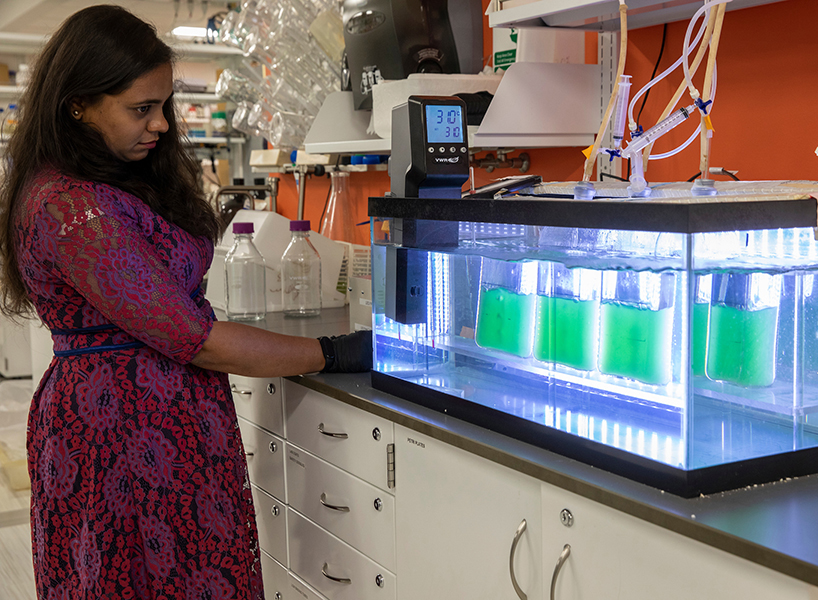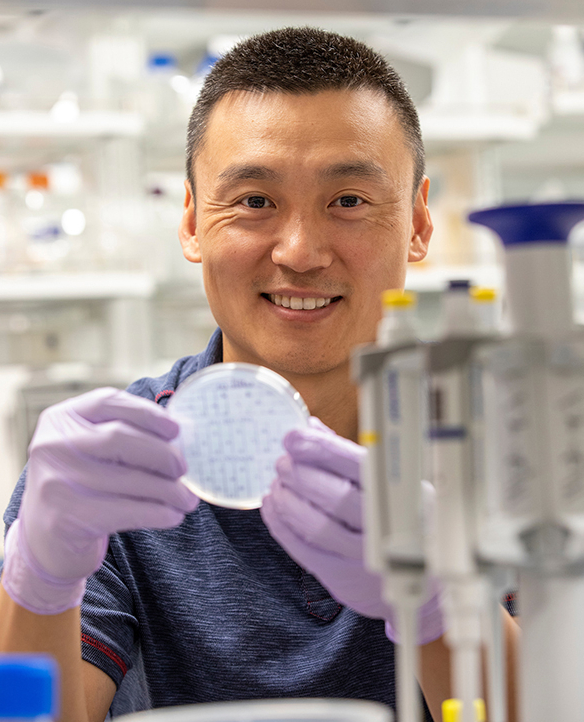

Xin Wang receives NSF CAREER grant for photosynthesis redesign research
By Susan Meikle, university news and communications
Xin Wang
Xin Wang, assistant professor of microbiology, has been recognized as one of the top young faculty in his field by the National Science Foundation (NSF) with the award of a CAREER grant from the NSF Faculty Early Career Development Program.
The NSF CAREER awards support early-career faculty who exemplify the teacher-scholar role and advance the mission of their departments and organizations.
Wang was awarded more than $895,000 for five years for his research on photosynthesis improvement using a photosynthetic cyanobacterium (blue-green algae) as a model system.
Life on Earth depends on photosynthesis — the process that plants and other photosynthetic organisms use to turn sunlight, water and carbon dioxide into an energy source. Improving photosynthetic efficiency will be a key factor in improving food crop production for a sustainable food supply in the next few decades, Wang said. This is an increasingly important problem because, by 2050, the world’s population is projected to reach 10 billion people.
Different bottlenecks during the photosynthetic pathway have been identified by researchers and targeted for enhancing photosynthetic performance. Wang’s project will investigate how photosynthesis is affected during the daily dark-to-light transition, a universal environmental stress.

Doctoral student Shrameeta Shinde tends cyanobacterium cultures.
Cyanobacteria drastically change their carbon metabolism under daily light-dark cycles. “It is important for photosynthetic organisms to have a mechanism in place to cope with this stress and ensure healthy photosynthetic performance upon exposure to light. How photosynthetic organisms achieve this dark-to-light transitions remains unclear,” Wang said.
His project applies cutting-edge biochemical and systems biology approaches to dissect the molecular mechanisms that allow this dark to light transition to occur in a model photosynthetic cyanobacterium (Synechococcus elongatus PCC 7942).
His ultimate goal is to design synthetic pathways to stabilize photosynthesis. This photosynthesis redesign research will contribute to efforts scaled up for crop plants toward a sustainable food supply.
Wang has multiple research collaborations with colleagues in microbiology, and is principal investigator or co-principal investigator on several grants funded by the NSF and the Department of Energy.
Wang joined Miami University in fall 2017 after completing a post-doctoral fellowship at Texas A&M University. He received his doctorate from the University of Hawaii at Mãnoa in 2013.
Read more about his research in this earlier Miami News story Engineering Microbes.
- Follow him on Twitter @WangXLab.

